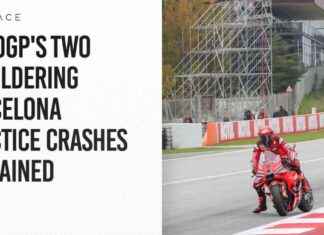Door after door, Lydia Heykamp hammers her message to the inhabitants of an affluent corner of Virginia: after the historic reversal of the Supreme Court on the right to abortion, she calls for redoubled efforts so that this American state outright bans simply voluntary interruptions of pregnancy (IVG).
The 23-year-old anti-abortion activist is at the forefront of the new offensive against abortion in the United States, this time organized at the local level after the high court returned to the level last summer. Federal, on its decision Roe v. Wade which guaranteed a constitutional right to abortion.
“I was thrilled,” recalls the young woman.
But “it was only the beginning”, she assures, saying that she does not want to “remain silent and arms crossed” as a new fight begins.
After the Supreme Court’s decision, each state has regained the freedom to legislate as it sees fit in matters of reproductive rights. Some promptly banned abortions, while others sought to protect this right.
“The movement (anti-abortion, editor’s note) is still quite a long way from getting what it wants, namely a ban on abortion on the scale of the entire country”, explains Mary Ziegler, professor of human rights. University of California at Davis and public policy specialist in reproductive health.
In the face of overwhelming public opinion that abortion should be legal in most cases, anti-abortion activists like Lydia Heykamp have directed their efforts at state legislatures, courts and local populations. .
The young woman and a few other activists from the Students for Life Action organization therefore knocked on the doors of North Chesterfield, an affluent suburb of Richmond, the capital of Virginia.
They are there to support the campaign of Mark Earley, Republican candidate for the local elections in this state in the eastern United States and “100%” opposed to abortion, including in cases of rape or incest.
This is also the position defended by Lydia Heykamp. “Abortion is an act of violence against human life, and another act of violence does not repair the act of violence committed against the mother,” she believes.
The convictions of this young curator find their roots in particular in her little sister, who suffers from trisomy 21: in the United States, most fetuses carrying this genetic anomaly are aborted.
Most of the residents of the large houses with manicured lawns who open their doors to him also want — at least to some extent — to limit the right to abortion.
Like Ken Johnson, 71, retired from the tobacco industry. “If it’s fair I was drunk on Saturday night and forgot to take the pill, I’m sorry but you had to think about it before,” he told AFP, covering the barking of his two little dogs left behind. in her house.
But “if a crime has been committed, no problem,” he says about pregnancies occurring after rape or incestuous acts.
For Shirley Miller, a retired teacher soon to be in her 80s, sometimes the health of the mother has to take precedence over that of the fetus, as in the case of a 10-year-old girl who became pregnant in Ohio after being raped.
This tragedy caused outrage in the United States last summer after the girl had to travel to another state to have an abortion, Ohio having banned the practice of abortion after six weeks of pregnancy.
“In that case, I wholeheartedly agree with abortion,” she told AFP: “What 10-year-old child should be a mother?”
Anti-abortion activists adapt their objectives locally, depending on the state, aiming here for a total ban, there a limitation to the first weeks of pregnancy.
“We are proposing laws that we think will pass in one state, but that might not pass in others,” says Laura Echevarria, communications director for a large anti-abortion organization, National Right to Life.
The movement also seeks to increase the help offered to pregnant women in so-called “crisis” centres, most of the time affiliated with religious organizations, where they are offered limited medical services and where they are mainly advised against abortion.
It’s been ten years since Justine Norman, 34, walked through the door of such a clinic, an hour’s drive east of Washington.
Struggling then with an addiction and struggling to make ends meet, she considered having an abortion. But “thanks to the advice received and the volunteers”, she told AFP that she had given up, a decision that now fills her with joy.
The young woman defines herself today as opposed to abortion.
06/22/2023 14:30:49 – North Chesterfield (United States) (AFP) – © 2023 AFP







